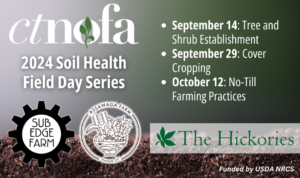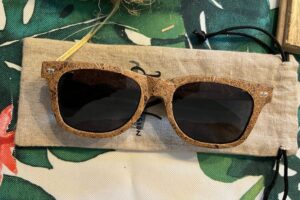EcoType Project Plant Sale Recap
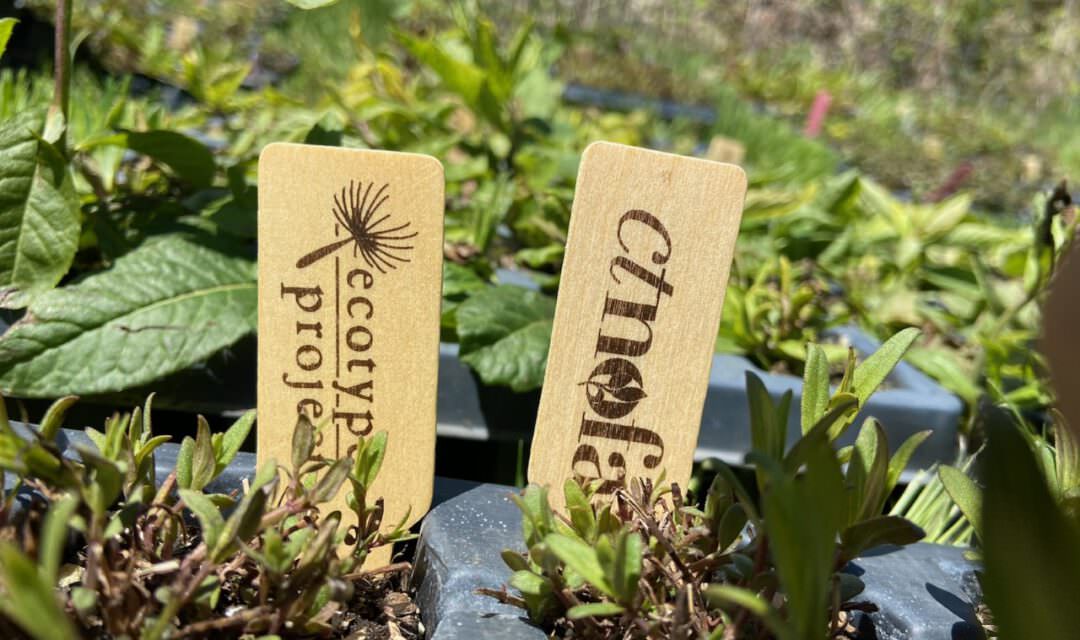
On May 15th and May 16th, Wilton High School, a partner of The Ecotype Project of CT NOFA, successfully sold the first batch of ecotype native pollinator plants to one hundred and thirty-nine people. 5,526 plants were distributed and will be planted in the soils throughout ecoregion 59- fortifying our green corridor and pollinator pathways with the right plants in the right place! The distribution of these special plants was the culmination of two years of coordinated work among botanists, farmers, nursery growers, and conservation groups across Connecticut.

The plant sale, coordinated by Jim Hunter and Brett Gilman of the Wilton High School Garden Club, consisted of the seven ecotype species grown by Ecotype Project partner Darryl Newman and his team at Planters Choice Nursery. Customers included farmers, conservation groups, and backyard gardeners coming from Connecticut, New York, and even as far as Plymouth, MA.
Each species sold was the offspring of seed wild-collected by expert botanists from our region and represents an ecotype, or the local genetics, of the native plants from our region. Being truly “from here” means these plants have the best chance of persisting in our environment. CT NOFA is following in the footsteps of some leading conservation and farming organizations across the country championing “local ecotypes” in nursery crops and is proud to bring this forward-thinking movement to fruition in Connecticut. The most popular choice was Beardtongue (Penstemon digitalis) a very important pollinator plant that has a long bloom time and is attractive to many varieties of bees. By supporting the native plants, we support native pollinators, and by supporting pollinators, we support our farms and food system – an effort being championed from the home landscape to large scale restoration habitats.
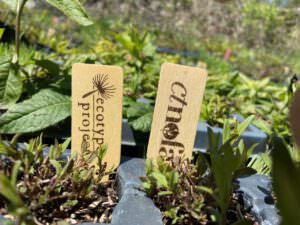
Due to the COVID pandemic, Wilton High School was closed so CT NOFA was able to support its partner by offering The Hickories, an organic farm in neighboring Ridgefield, as a site for the sale. “The partnership between arboretums, high schools, farms, nurseries, conservation groups, garden clubs, – the list goes on and on – showcases a wide community coming together to support habitat restoration and innovative farming efforts in Connecticut. We at CT NOFA are so proud to see the culmination of the Ecotype Project’s efforts,” said Dina Brewster, Executive Director of CT NOFA.
“The fact that the Wilton HS Organic Garden Club was able to pull off this impressive fundraiser during a pandemic was remarkable! The website was organized and easy to follow, and the communication with the club and the Hickories was clear and helpful. My pollinator plugs are settled in their new home and ready to attract pollinators! Thank you, WHS Organic Garden!” – Jean Brey of Redding, CT
Thank you to all that traveled to support this initiative, even in the face of this pandemic. Your local pollinators will be delighted by the wild-collected, locally grown feast you have just introduced back into your local habitats!
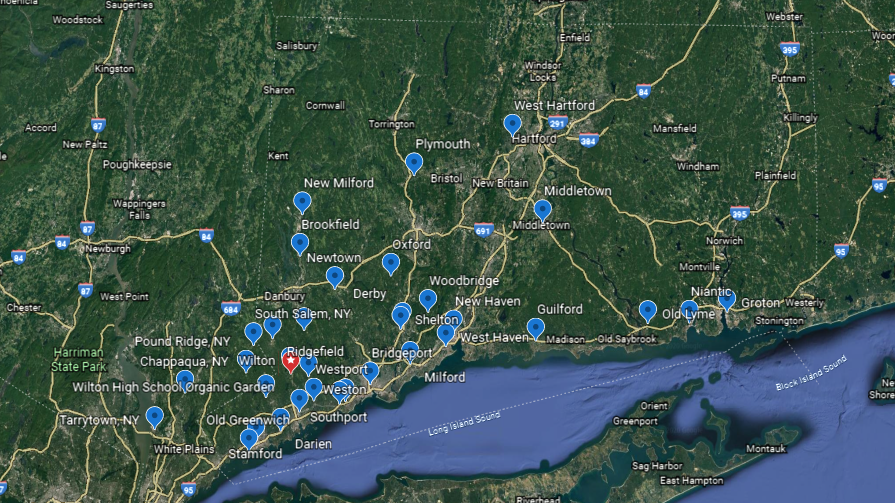
Where people traveled from to pick up Native Ecotype plugs
Stay tuned for the upcoming Ecotype Project Plant Sales!
From Mr. Hunter
“It’s amazing. This is the first time any student group has ever done something like this and Wilton High School is leading the way. We need to thank Brett Gilman, the Wilton High School Organic Garden Club. […] Let’s keep supporting Wilton and it’s biodiversity!”
Quotes
“I had the wonderful experience of buying and picking up some important native plants from the Wilton High plant sale! I was very excited to be able to purchase native plants for my garden, and they were perfect size and condition for planting. I’m very happy with the results, thanks, guys!” – Taylor Lynne Matzke of Millstone Farm in Wilton
Funding for The Ecotype Project has been provided by the Specialty Crop Block Grant Program of the Agricultural Marketing Service, US Dept of Agriculture, awarded and administered by the Connecticut Department of Agriculture
Recent Posts
CT NOFA Announces 2024 Slate of Soil Health Field Days
Beginning in late summer, CT NOFA will host three field days centered on soil health…
Read MoreCT NOFA Board Member, Freedom Gerardo, Featured on New Hampshire Public Radio
CT NOFA board member, Hector “Freedom” Gerardo, was recently featured on New Hampshire Public Radio’s…
Read More
